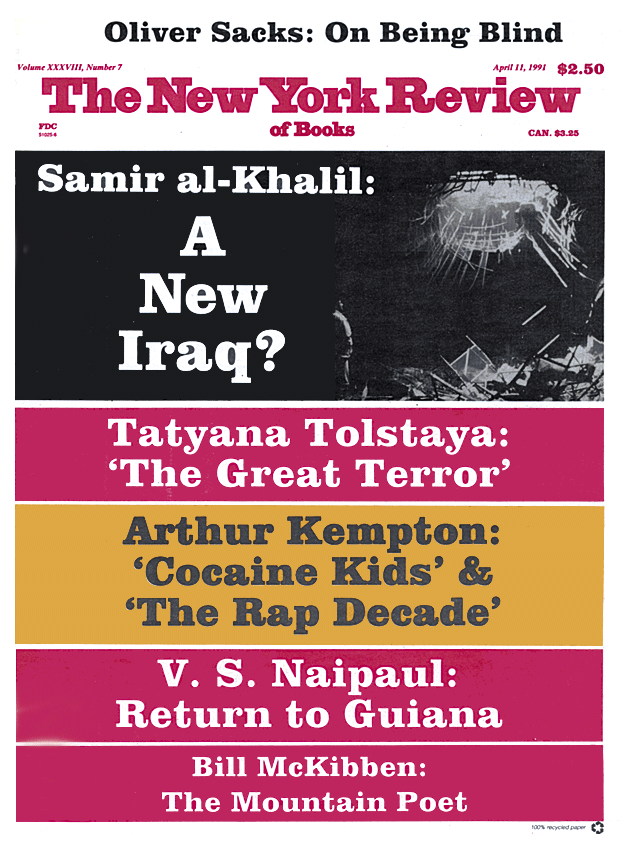In response to:
The Blue Pearl of Siberia from the February 14, 1991 issue
To the Editors:
I had just completed reading the first two parts of Peter Matthiessen’s “The Blue Pearl of Siberia” [NYR, February 14] when I paused to watch a Channel 4 (British Television) report on the Russian press. The programme “The Media Show” is a well respected, if popular, review of current media issues. This particular programme concerned the increasing control of the press after recent liberalisation. Whilst drawing attention to the perceived problems of pornography it suggested this was being used as a justification for censorship. The second half of the programme concentrated on the persecution of the only gay newspaper in Moscow, Tuma. Valentin Rasputin was then invited to comment. On the basis of Peter Matthiessen’s eulogy I looked forward to a robust defence of freedom. This, according to the sub-titles, was what he said:
If you allow one thing it can lead to something else. If you legalise homosexuality the necrophiliacs will clamour for their rights—after all they’re a sexual minority too. When it comes to homosexuals let’s keep Russia clean. We have our own traditions. That kind of contact between men is a foreign import. If they feel their rights are infringed they can always go and live in another country.
(Voice-over: Gorbachev’s commission on public morality was set up in December 1990. But the influence of Valentin Rasputin on the planning stages may serve to give it a broader role.)
The movement against the sexual revolution and cynicism has been active for a while. Three years ago we came out against beauty contests. They seemed outrageous then, but compared with this they were purity itself. I was one of the first to alert the President, and I was involved in drawing up the first draft…. Get rid of censorship? That means get rid of morality. You can’t talk about applying pluralism here. You either have morality or you don’t. We must take radical steps to preserve a moral society.
I returned to the article not at all surprised to discover charges of passive anti-Semitism. I was however concerned that doubt was cast over their legitimacy and a defence of Rasputin as a moral, if illiberal, man was attempted. A great writer he may be but let no one who wishes to be associated with him be in doubt as to the true nature of his morality.
Lionel Joyce
Hexham, England
This Issue
April 11, 1991


